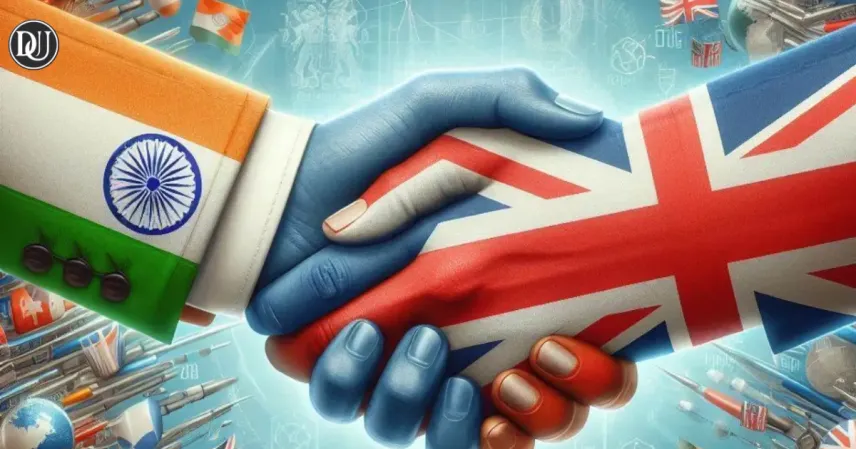On May 8, 2025, the global political and economic landscape experienced significant shifts, marked by a major UK trade deal between India and the United Kingdom and a strong rally in U.S. stock markets. These developments come amidst escalating tensions between India and Pakistan, particularly following India's recent missile strikes in Pakistan-administered Kashmir, which have heightened concerns over regional stability.
![]()
The UK trade deal between India and the UK has garnered widespread attention. Finalized on May 6, the deal is the UK’s largest post-Brexit trade accord and includes several key provisions, such as tariff reductions and an exemption from UK national insurance contributions for Indian workers for three years. This provision, initially rejected by former UK trade secretary Kemi Badenoch, has sparked political controversy in the UK. Critics, especially opposition leaders, have accused Prime Minister Keir Starmer of compromising national interests. Despite the domestic backlash, the timing of the deal is seen as strategically significant, especially considering the backdrop of India's escalating conflicts with Pakistan.
Simultaneously, India launched Operation Sindoor, a series of missile strikes aimed at what it described as terrorist infrastructure in Pakistan-administered Kashmir and Punjab. This military escalation came in response to a terrorist attack in Indian-administered Kashmir that claimed the lives of 26 Hindu tourists. Pakistan condemned the strikes as “cowardly” and vowed retaliation, escalating tensions between the nuclear-armed neighbors. The situation worsened as Pakistan claimed to have downed several Indian aircraft and engaged in artillery exchanges along the Line of Control. Analysts suggest that the timing of the UK trade deal may have been intended to send a message to former U.S. President Donald Trump, who had previously imposed tariffs on Indian goods. By securing this trade agreement with the UK, India could be signaling its ability to diversify its trade partnerships and reduce dependence on the U.S.
![]()
While the political ramifications of these events unfold, the financial markets responded positively, particularly in the U.S. On May 8, the U.S. stock markets experienced a significant rally, fueled by the announcement of a "full and comprehensive" trade agreement between the U.S. and the UK. The rally saw notable gains across major indices, including the Dow Jones Industrial Average, which rose by 218.81 points (+0.53%) to 41,332.78; the Nasdaq Composite, which increased by 190.19 points (+1.07%) to 17,928.35; and the S&P 500, which gained 39.2 points (+0.7%) to 5,670.48. The rally was primarily driven by strength in the technology and energy sectors, alongside investor optimism about the potential for easing trade tensions, particularly with China.
The global ripple effect of the UK trade deal also extended to other markets. European and Asian indices saw gains, as investors viewed the UK trade deal as a sign of strengthened economic ties between two major economies. Moreover, the positive market sentiment was underpinned by growing hopes for potential easing of global trade conflicts.
However, amid these economic developments, concerns about the geopolitical situation in South Asia continue to grow. The international community, including the U.S., China, and the UK, has expressed concerns over the escalating tensions between India and Pakistan, urging both nations to exercise restraint and engage in dialogue to prevent further escalation. The juxtaposition of economic optimism with rising military tensions has left the global community on edge, highlighting the delicate balance between diplomatic negotiations and military actions in a region that remains critical to global stability.
![]()
As India and Pakistan stand on the brink of further escalation, the coming days will be crucial in determining whether diplomacy can prevail over conflict, and whether global markets can maintain their positive momentum amid such geopolitical uncertainties. With the UK trade deal at the center of this complex web of geopolitics and economics, its full implications will unfold in the coming months. The UK trade deal stands as a pivotal moment in both India's economic strategy and its global positioning.










